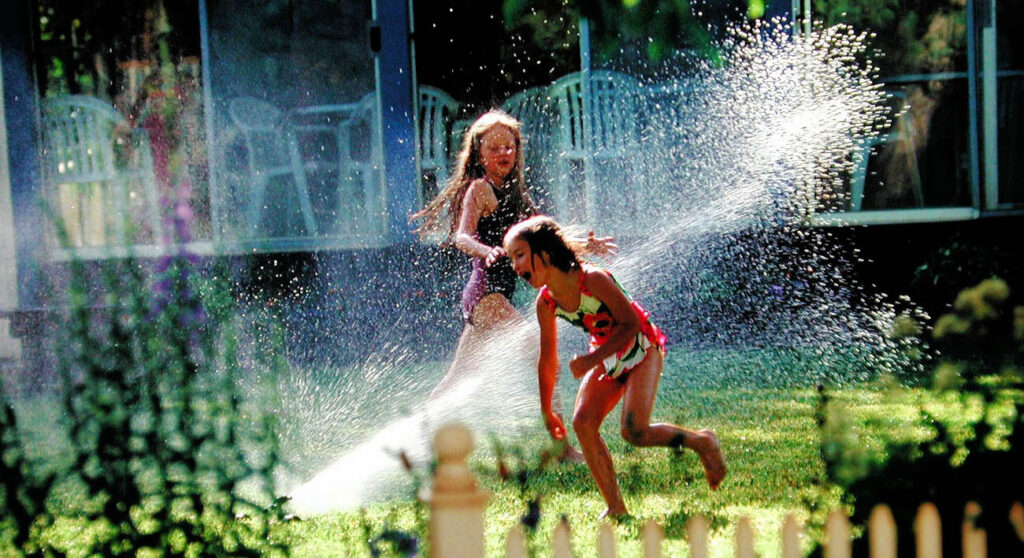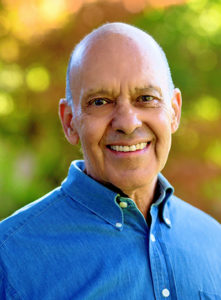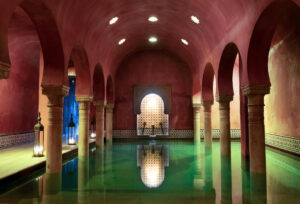
Countless words have been written about the healing powers of water.
Ancient cultures in Greece, China, and Japan were among the first to develop techniques for therapeutic applications of water.
In Europe, the practice of “water cures” rose to prominence in the 18th and 19th centuries, as physicians studied the science behind water therapy.
For hundreds of years, people have traveled great distances to bathe in or drink water from mountains, wells, and springs that are said to be imbued with a special energy. Many people believe that water has the ability to absorb prayers and cleanse unwanted energy from the mind, emotions, and spirit – in addition to its physical healing properties.
Mohammed said that gardens with fountains could reflect Paradise here on Earth. In Islamic countries, many of which are arid, water plays both important physical and metaphysical roles. Vital to irrigation and to support all life, water in the Middle East was required for ablutions (ritual purification) and bathing as part of a daily spiritual practice. For these reasons, Muslim leaders took pains to secure constant access to water immediately upon developing a new community.

From a medical point of view, water helps to thin the blood and move nutrients and oxygen through the body.
Water very significantly affects energy levels and enhances brain function. (Test have shown that even mild dehydration can decrease physical energy by up to 40 percent.)
Water helps relieve constipation and prevent formation of kidney stones. After injury or surgery, it is crucial to drink a lot of water so that cell-repairing nutrients can be carried to the recovering areas. This is just one small example of the important role that water plays in health and healing.
In our travels throughout the world, Dr. Connie and I have studied how traditional cultures have used water as part of their rituals and health practices.
- Our search has taken us to traditional Arab baths (hammans) in Spain, where we lay on heated marble slabs while streams of hot water were poured over us.
- In other hammans in Spain, programmable showers with numerous water jets prepared us for the various temperatures of the plunge tubs.
- In Japan, we visited many hot spring resorts whose mineral-rich water was thermally heated by volcanoes.
- In the Hungarian countryside, we bathed in mineral baths whose unique combination of elements was reputed to cure cancer.
- In Lourdes, France, we had an early morning bath in the frigid spring where the Virgin Mary appeared to Bernadette.
The focused use of water for its therapeutic effects is called hydrotherapy. Hydrotherapy harnesses the life-giving power of water to provide relief and comfort to those who suffer from all manner of spiritual, emotional, and physical aches and pains.
From day one of our work as naturopathic doctors, we have made use of water in our therapeutic regimens for our patients. This is especially true at our Hawaii vacation rental and retreat center, where an infrared sauna, hot tub, and cold plunge are available to guests.
The healing powers of hydrotherapy are based on its mechanical and thermal effects. The body reacts in several ways to alternating applications of hot and cold water – especially its vasoconstrictive and vasodilative effects.
Hot water is used to quiet and soothe the body and slow the activity of the internal organs. Cold is used to stimulate, invigorate, and increase internal activity within the body. Alternated hot and cold treatments stimulate the immune system, influence the production of stress hormones, improve circulation and digestion, and lessen the body’s sensitivity to pain.

Other benefits of hydrotherapy include powerful detoxification effects, muscle and mental relaxation, increased metabolic rate and digestive activity, cell hydration, boosting immune system activity, and improved internal organ function by stimulating blood supply.
Hydrotherapy can play a part in treating a wide variety of conditions, including depression, anxiety, immune system problems, arthritis, colds, flus, chronic and acute headaches, digestive disturbances, joint, muscle, and nerve problems, sleep disorders, stress, chronic and acute pain, fibromyalgia, asthma, bronchitis, high blood pressure, and inflammatory conditions.
Interested in trying hydrotherapy? There are countless hydrotherapy techniques. Here are just two of them.
A simple way to experience the benefits of hydrotherapy is to turn off the hot water for the last 15 seconds of your shower. Physical stimulation and improved mental clarity are guaranteed!
In a forthcoming article, we’ll reveal the simple but amazingly effective wet sock treatment to relieve sinus congestion and frontal headaches.
A word of caution: people with severe heart problems and the very elderly can benefit greatly from hydrotherapy, but a narrower range of contrast between hot and cold applications must be employed, and they should be monitored by a health care professional.
For information about the services we offer at Pacific Naturopathic, please give us a call at 650-961-1660, use the convenient Contact Form to get in touch, or follow the link to: Consultations – Pacific Naturopathic. Thank you!
